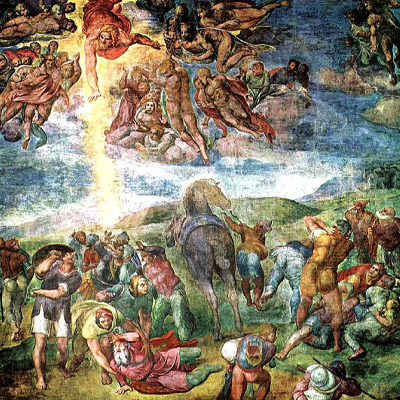
Feast of the Conversion of St. Paul
Scripture:
Reflection:
We’ve all heard talk of “Road to Damascus” experiences where a person undergoes a dramatic conversion experience as a result of a direct and overwhelming experience of the divine. After such a conversion experience, the person is irreversibly altered. A deeper intimacy with God compels new actions and a new way life. Is it any wonder that Ananias’ first directive to Paul after he regains his sight is “Get up and have yourself baptized”?
But what about us? Some of us may have dramatic experiences similar to Paul’s, but I suspect for most of us it is a bit more subtle. Paul’s experience still has a lot to offer us as we work in our own lives to discern where Jesus might be inviting us.
Paul was a product of his culture. In the Book of Acts, Paul himself tells us that he is “a Pharisee, born of Pharisees” (Acts 23:6) and “zealous for God” (Acts 22:3). It made sense, given his culture and training, that he would defend the Jewish tradition in which he was raised against those who followed “the Way.” They were, after all, a dangerous sect that was threatening his ancestral “law.”
Paul’s single-minded fidelity to his culture and training makes me wonder, what does it mean for each of us to be a product of our culture? Like Paul, what ancestral “law” might we be clinging to that the Lord is inviting us beyond?
Fortunately for Paul, Jesus intervenes directly, telling him precisely who he is persecuting: “I am Jesus the Nazorean whom you are persecuting” (Acts 2:8). By persecuting those who followed “the Way,” Paul was persecuting Jesus directly.
The Passionist Rule and Constitutions describe a similar contemporary reality: “[Jesus’] Passion and death are no mere historical events. They are ever-present realities to people in the world of today, ‘crucified’ as they are by injustice, by the lack of a deep respect for human life, and by a hungry yearning for peace, truth, and the fullness of human existence” (65). Jesus is alive in the crucified of today as he was alive in the early Christians of “the Way”.
In the face of this reality, I wonder, how might I offer my heart anew, asking God for the gift of conversion, so that my actions and life grow ever closer to sharing the joys and sorrows of the crucified of today? How might we all? And what kind of world would it be if we did?
Lissa Romell is the Administrator at St. Vincent Strambi Community in Chicago, Illinois.
